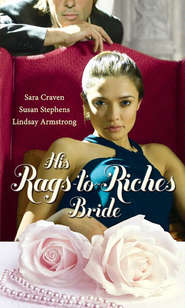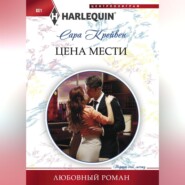По всем вопросам обращайтесь на: info@litportal.ru
(©) 2003-2024.
✖
His Convenient Marriage
Автор
Год написания книги
2018
Настройки чтения
Размер шрифта
Высота строк
Поля
‘Oh, dear.’ Chessie pantomimed dismay. ‘How wimpish. I’ll try and look more cheerful from now on.’
‘Are all your memories so painful?’
She gave the pale liquid in her glass a fierce and concentrated stare. ‘How did you know I was—remembering?’
‘An educated guess—having attended the same school myself.’ He finished his gin and tonic. ‘Want to talk about it?’
She shook her head. ‘What can anyone say? One minute you’re riding high. The next, you’re flat on your face in the mud, not knowing whether you’ll ever get up again. That’s my personal angle. The rest I’m sure you read in the newspapers at the time. They didn’t leave many stones unturned.’
He said gently, ‘It would have been difficult to miss.’ He watched her for a moment. ‘Well—aren’t you going to say it?’
‘Say what?’
‘That your father was entirely innocent, and, but for his untimely death, he’d have cleared himself of all charges.’
Chessie slowly shook her head. She said bleakly, ‘If he’d lived, I think he would still have been in jail. In many ways, his death was a mercy for him. He’d have hated—hated …’
She stopped, biting her lip. ‘I’m sorry. I’m being very boring. This is supposed to be a celebration, not a wake.’
He said quietly, ‘I would not have asked if I hadn’t wanted to know, Francesca.’
But why did he want to know? she wondered as she drank some more sherry. Now that they were out of their working environment, maybe he felt he had to make conversation that didn’t concern the current script or the purely domestic details either.
Yet he could have picked something less personal. Music, maybe, or cinema.
What did a man and a woman talk to each other about over dinner and a bottle of wine? She was so totally out of touch. And nervous.
She hadn’t had a serious boyfriend since Alastair. The dates she’d gone out on in London had been totally casual and uncommitted. She couldn’t think of one man out of all of them she’d wanted to see again, let alone know better.
And since London, of course, there’d been no one at all.
Until tonight—which naturally didn’t count, she reminded herself swiftly.
It was a relief when the waitress came to say their table was ready. The soup and pâté, when they arrived, were so good that it was really only necessary to make appreciative noises and eat.
So Chessie made appreciative noises, and ate.
She and Miles had been put in one of the smaller rooms off the main dining room. It was panelled and candlelit, and intimate, with all the tables set for two. Even the flower arrangements were small, presumably to allow diners to gaze unimpeded into each other’s eyes.
The Fewstons must have a romantic streak, Chessie thought, buttering her bread roll, still warm from the oven. But it had led them severely astray this time.
She’d have settled for a wall of delphiniums and hollyhocks to shelter behind. Or even a privet hedge.
While their plates were being changed, Chessie hurried into speech, asking about the film script, and what would be involved in adapting the book.
It wasn’t just an excuse to find an impersonal topic, she told herself. She was genuinely interested, and after all she was going to be closely involved in the project.
But what next? The weather? Would it be a hot summer, and was it really the greenhouse effect?
Brilliant, she thought. What a conversational ball of fire you are, Chessie, my dear.
‘Am I really such a difficult companion?’ Miles leaned back in his chair, the blue eyes hooded.
Rocked back on her heels, Chessie took a gulp of wine, feeling her face warm with sudden colour.
‘No, of course not,’ she managed. Although he could be a mind-reader.
‘Perhaps I should have told you to bring a notebook, and dictated a few letters between courses,’ he went on. ‘You might have felt more at ease then.’
‘I doubt it.’ She put down her glass. ‘I still don’t understand what I’m doing here.’
‘You’re eating an excellent meal,’ he said. ‘Which you haven’t had to prepare, cook, and wash up after.’
‘And that’s all there is to it?’ She felt oddly breathless.
‘No, but the rest can wait.’ The cool face was enigmatic, the scar silver in the candlelight. ‘May I refill your glass?’
‘I don’t think so.’ Chessie covered it with a protective hand. ‘Something tells me I need to keep a clear head.’
His smile mocked her. ‘I haven’t seduction in mind, if that’s what you’re thinking.’
‘It never crossed my mind.’
‘How incredibly pure of you,’ he murmured. ‘Considering the amount of time we spend alone together, have you really never wondered why I’ve never made a pass at you? Or do you think my scars have rendered me immune from the normal male urges?’
She bit her lip. ‘I don’t suppose that for a moment. But I took it for granted that passes were out because of our situation—the terms of my employment. And because …’ She paused.
‘Yes?’ Miles prompted.
She swallowed. ‘Because it would be—inappropriate behaviour, and tacky as well. The amorous boss and his secretary—that’s a cliché, and you don’t deal in clichés,’ she added in a rush.
‘Thank you—I think,’ he remarked sardonically. ‘Yet it was our—situation that I wanted to discuss with you.’
‘Have you decided to sell the house?’ Her last exquisite mouthful of guinea fowl turned to ashes in her mouth. Suddenly she was contemplating the prospect of being homeless and back on the job market at the same time.
It had always been a possibility, she supposed, yet just lately—stupidly—she’d allowed herself to feel settled. Safe even.
‘Absolutely not.’ He looked genuinely surprised. ‘What gave you that idea? Didn’t you hear me say I was planning to do some entertaining?’
‘Yes—I’m sorry.’ She hesitated. ‘I suppose insecurity makes you paranoid.’
‘I can appreciate that.’ He put down his knife and fork, frowning slightly. ‘That’s part of the reason I want you to consider a change in your terms of employment.’
‘A change?’ Chessie was puzzled. Her contract with Miles had been carefully and meticulously defined. There were no obvious loopholes or room for manoeuvre. ‘What kind of change?’
He drank some more wine, the blue eyes meditative as he studied her across the top of the glass.
He said, ‘I thought we might get married.’













